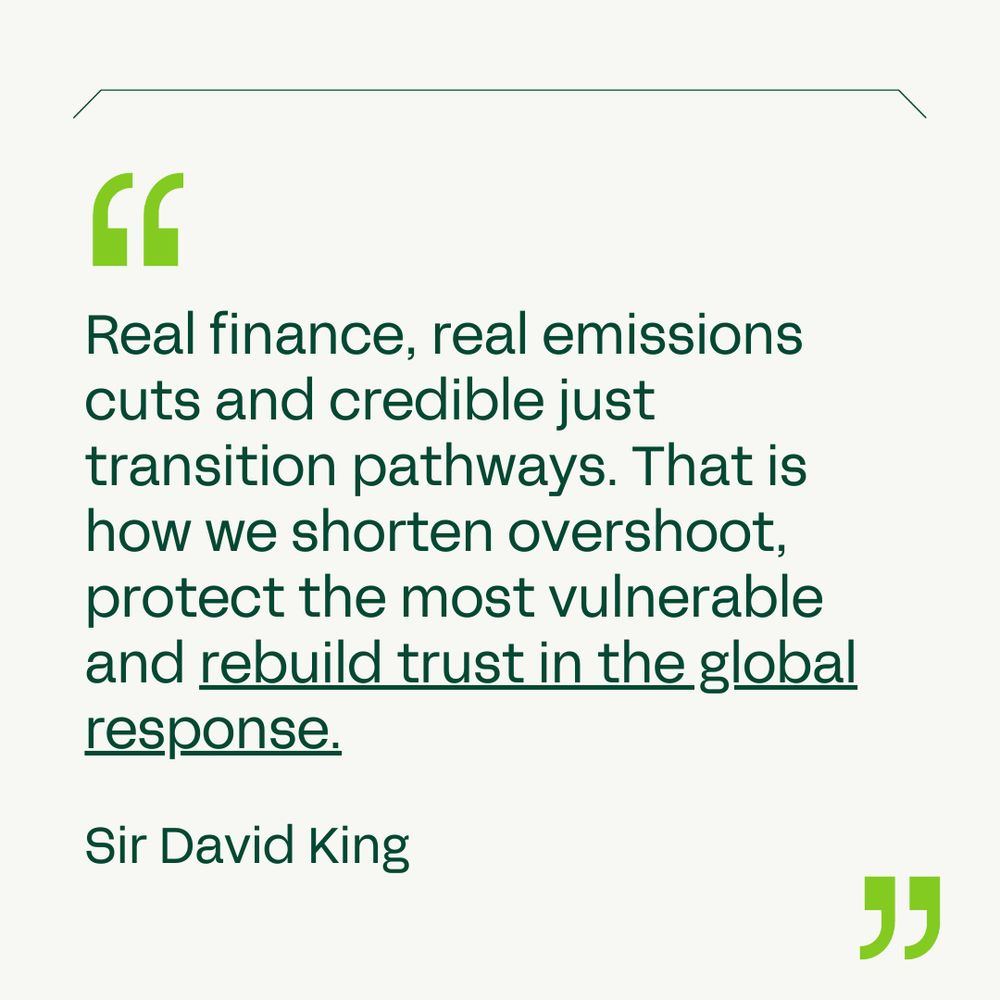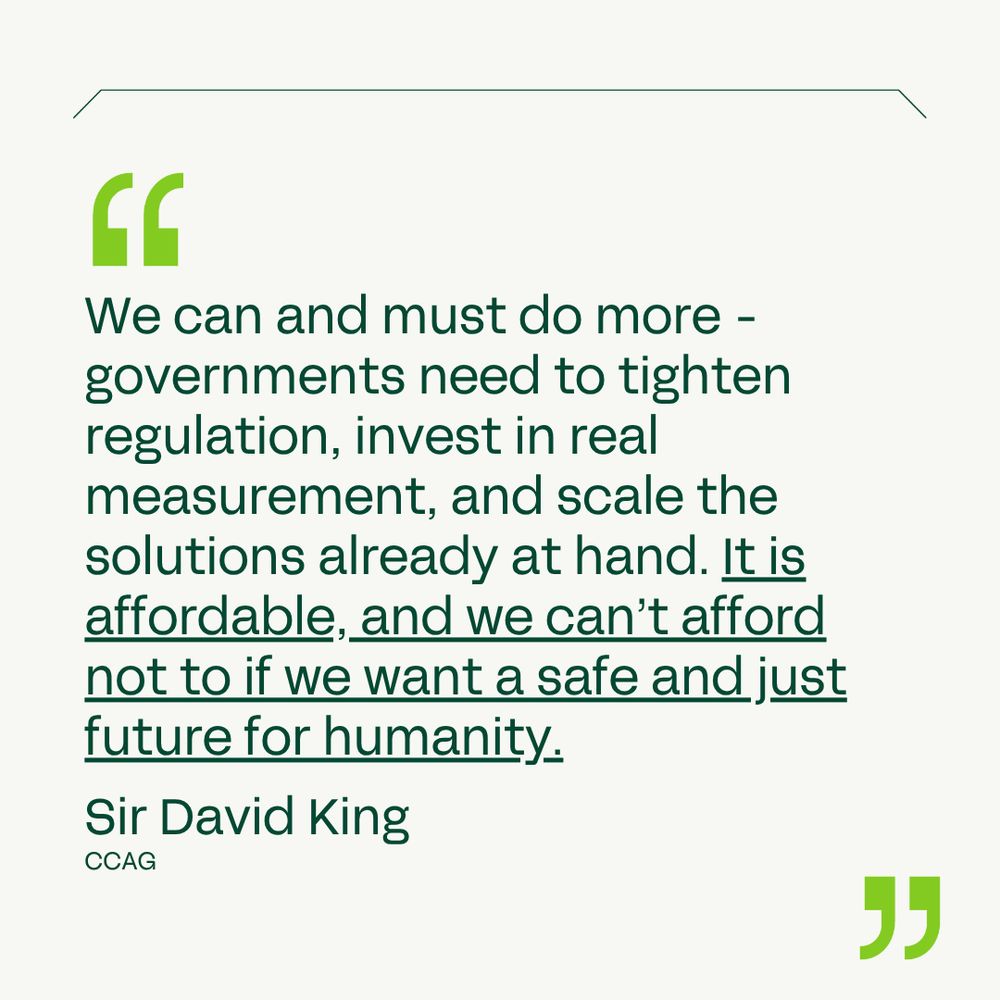
In an interview with TIME, Sir David King explores the successes and shortcomings of the Paris Agreement, and what we must do now to accelerate climate action.
Read the full interview: time.com/7340848/pari...

In an interview with TIME, Sir David King explores the successes and shortcomings of the Paris Agreement, and what we must do now to accelerate climate action.
Read the full interview: time.com/7340848/pari...
Read Sir David King’s interview with El Pais here: english.elpais.com/climate/2025...

Read Sir David King’s interview with El Pais here: english.elpais.com/climate/2025...
Watch the full discussion here: www.youtube.com/watch?v=7v27...

Watch the full discussion here: www.youtube.com/watch?v=7v27...

Read the full blog: www.ccag.earth/news/the-sun...

Read the full blog: www.ccag.earth/news/the-sun...


Read our chair Sir David King’s open letter to the EU commissioner here: www.ccag.earth/news/an-open...

Read our chair Sir David King’s open letter to the EU commissioner here: www.ccag.earth/news/an-open...
Read the full article here: time.com/7340848/pari...

Read the full article here: time.com/7340848/pari...

Today, that benchmark still stands but progress does not. We have entered overshoot, and are losing precious time debating costs instead of delivering the solutions to pull humanity back.

Today, that benchmark still stands but progress does not. We have entered overshoot, and are losing precious time debating costs instead of delivering the solutions to pull humanity back.
Our thanks go to the panel Lorraine Whitmarsh, Wolfgang Blau, Joyce Mendez, Nick Stern, as well as to Graihagh Jackson for chairing the panel and The Conduit for hosting us.



Our thanks go to the panel Lorraine Whitmarsh, Wolfgang Blau, Joyce Mendez, Nick Stern, as well as to Graihagh Jackson for chairing the panel and The Conduit for hosting us.
A collapse of the AMOC could mean worse winters, harsher droughts, and major global disruption.
The science is clear: risks are real, but action now can still change the outcome.

A collapse of the AMOC could mean worse winters, harsher droughts, and major global disruption.
The science is clear: risks are real, but action now can still change the outcome.






Progress cannot rely on negotiated text alone. Meaningful climate action depends on our collective courage – across governments, industry, civil society, and communities.
The resources and knowledge exist. What happens next is up to us.
Read our key takeaways from COP30 below

Progress cannot rely on negotiated text alone. Meaningful climate action depends on our collective courage – across governments, industry, civil society, and communities.
The resources and knowledge exist. What happens next is up to us.
Read our key takeaways from COP30 below
Sir David King reflects on a formal process that has stalled, contrasted with a powerful new signal that could finally drive meaningful climate action.

Sir David King reflects on a formal process that has stalled, contrasted with a powerful new signal that could finally drive meaningful climate action.
With negotiations at COP30 reaching their crucial closing stages, there is a glaring gap in the current draft agreement: a roadmap away from fossil fuels.
Sir David King reacts:

With negotiations at COP30 reaching their crucial closing stages, there is a glaring gap in the current draft agreement: a roadmap away from fossil fuels.
Sir David King reacts:





Read more about this vital emergency brake in our latest report: www.ccag.earth/news/pulling...

Read more about this vital emergency brake in our latest report: www.ccag.earth/news/pulling...
Critical minerals will play an essential part in the climate transition, enabling technology needed to speed up decarbonisation - making discussions such as this ever more important.

Critical minerals will play an essential part in the climate transition, enabling technology needed to speed up decarbonisation - making discussions such as this ever more important.


